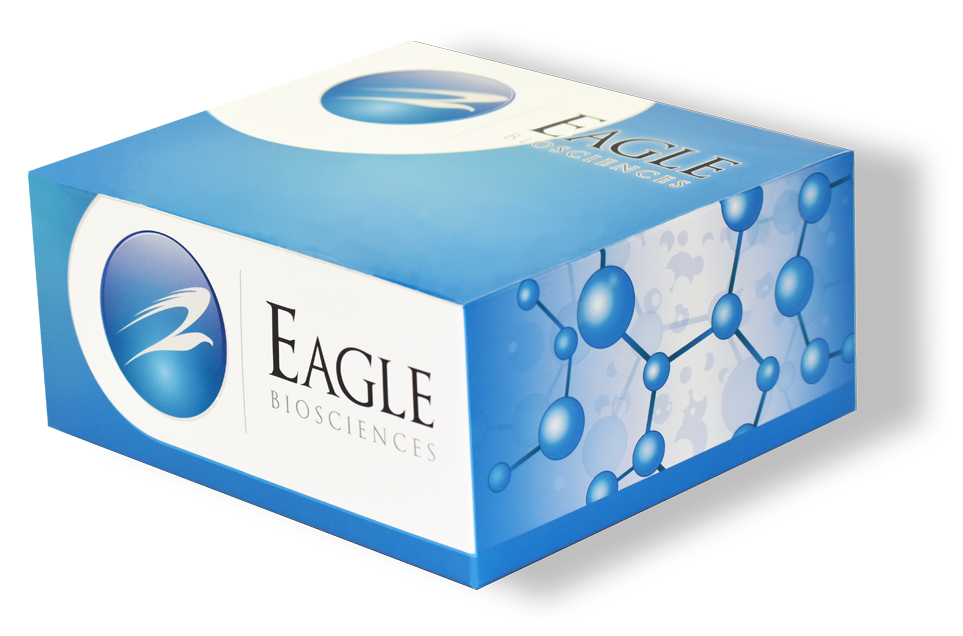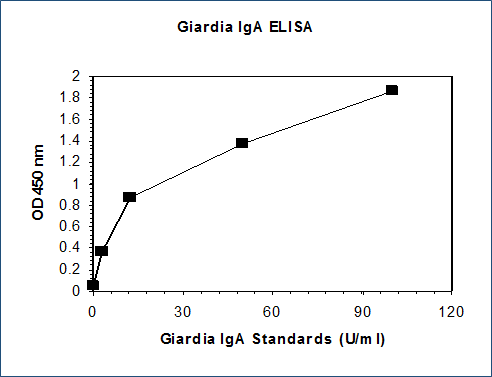Human anti-Giardia lamblia immunoglobulin A (IgA) is a mucosal antibody produced as part of the immune response to Giardia infection, primarily in the gastrointestinal tract. Secretory IgA (sIgA) plays a key role in mucosal immunity by binding to Giardia trophozoites and preventing their attachment to intestinal epithelial cells, thus limiting colonization and promoting clearance. The presence of specific anti-Giardia IgA antibodies in serum or mucosal secretions (e.g., saliva, intestinal fluids, or stool) serves as an immunological marker of exposure or active infection.
In clinical settings, detection of anti-Giardia IgA is useful in serological testing to support diagnosis, particularly in cases where antigen detection or microscopy is inconclusive. Elevated IgA levels may indicate a recent or ongoing infection, and their presence can be particularly informative in endemic regions or for evaluating chronic or recurrent giardiasis. In research, measuring anti-Giardia IgA responses provides insights into host immunity, vaccine efficacy, and immunopathogenesis. Longitudinal studies often use IgA titers to track immune responses in different populations, such as children, travelers, or immunocompromised individuals, making this biomarker valuable for both diagnostic and investigational purposes.
This product is manufactured in USA by Eagle Biosciences.


